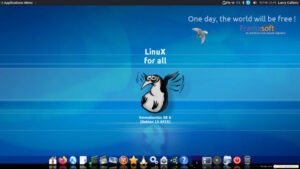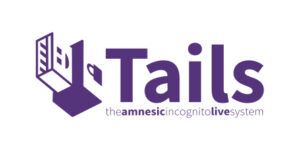Also included: Solus 1.2, Elementary Snaps, Microsoft fights OEM crapware and LibreOffice’s minor upgrade.
FOSS Week in Review
The biggest news this week was the much awaited release of Fedora 24.
It’s baseball season, and in baseball about this time of year talk turns to trades. Well, I’ve been traded for one game…er, review. That means that although I’ve downloaded and installed Fedora 24 on our test machine, I can’t really give it a full review here. However, I’ll make sure to point you to the review as soon as it goes up “on another network,” as Johnny Carson used to say. All I can tell you now is that so far it seems to do what it does well.
Other than Fedora, the most interesting story to me this week might have been missed by many FOSSers as it doesn’t involve FOSS at all, but our proprietary lover in Redmond.
According to Ars Technica, Microsoft is building a tool that will enable owners of new Windows computers to remove all of the crapware that OEMs love to load on machines. Right now, the tool is “available only for Windows insiders” (whatever that means) and it’s implementation is far less than perfect (after all, this is Microsoft we’re talking about). What it does is grab a copy of Windows latest and greatest and performs a fresh install on the users machine. Presto! Out goes the crapware that usually can’t be removed by any means other than a clean operating system install while managing, in most cases (again, this is Microsoft), to keep the user’s data intact.
Of course, if Microsoft really wanted to do a service for its users, the tool would offer the better option to replace Windows with something like Linux Mint.
SourceForge can’t catch a break. I have no idea what kind of owners the new guys in charge at SourceForge might eventually turn out to be. They may eventually turn out to be as bad or worse than Dice Holdings, the previous owners who screwed it up. They might also turn out to be the best thing that’s ever happened to FOSS developers in need of a repository. I don’t know.
What I do know is that in the six months that BIZX has owned the site, they’ve undone every single major issue that caused projects like GIMP to abandon the repository. In addition, they’ve been busy adding some cool new features. But on Reddit, Ars Tecchnica, FOSS Force and other sites, many commentors seem to be unwilling to recognize these efforts.
My advice? Chill. Give them a chance. Give them some rope, so to speak. If they hang themselves…fine. Then we’ll have something to complain about. In the meantime, give them a chance to perhaps become a free software asset. Why not make suggestions on steps you’d like to see them take rather than criticize them for sins that aren’t theirs and which they’ve corrected?
Just my two cents…
Another day, another distro: As already mentioned, after several delays, Fedora 24 has finally been pushed out the door and is available for download. Improvements include the addition of Flatpak, which seems to be similar to what Canonical is attempting to do with Snaps…. Solus 1.2 was also released this week. According to the developers, it includes improvements to Solus’ home grown Budgie desktop and begins “laying the framework for providing a performance gaming experience.”
Quick takes: Canonical continues to go Snap happy, this week announcing a minor point upgrade to Snapd that will among other things allow Snaps to work on Elementary OS 0.4 which is under development…. On Thursday, The Document Foundation announced the release of LibreOffice 5.1.4. This seems to be primarily a bug fix release.
Parting shot: I’ve been exchanging the occasional email for several years with Roy Schestowitz, whose site, Techrights, is a big pain in the keister to organizations such as Microsoft and the European Patent Office. Although he’s always been extremely polite in our email exchanges, from the tone of his attacks on the enemies of free software, I always figured him to be a very angry young man who would be impossible to hang with.
Don’t judge a book by its cover, however. In Robin Miller’s video interview, posted yesterday on FOSS Force, he comes across as relaxed and thoughtful — someone I wouldn’t mind having as a neighbor. If I’m ever lucky enough to find myself in London, I’ll have to look him up and see if he’s available to do lunch.
Well, that’s another week down the drain. Until next time, may the FOSS be with you…
Christine Hall has been a journalist since 1971. In 2001, she began writing a weekly consumer computer column and started covering Linux and FOSS in 2002 after making the switch to GNU/Linux. Follow her on Twitter: @BrideOfLinux














@Christine,
I don’t know if it’s an important distinction, but while Flatpak is in Fedora 24 it’s not actually part of it. It’s a separate project that is mostly worked on by developers affiliated with Fedora and Red Hat but aims to be independent of any particular Linux distribution. http://flatpak.org/faq.html
“Windows insider” is some kind of user program that people on Windows can sign up for. I believe it’s free, but I don’t care enough to check further.
I’m glad Roy Schestowitz is a pleasant person, but the writing style of Techrights strikes me as childish and even troll-like, and even as an FSF member and critic of proprietary software, I can’t take the sight seriously or recommend it to anyone.
Christine Windows Insiders are basically beta testers – They are the people who test Windows updates and new bits before the rest of us get them…
@Martin Hooper Thanks for the clarification.
@Mike S. Subtle distinction, since devs are affiliated with Fedora and Red Hat, but good to know.
Am I the only one who thinks that having two universal, sandboxed application installers defeats the point of having either ?
We will either end up with distros being just as fractured once more and app developers having to choose between building snaps or flatpaks or both – or every distro ends up having to support both. None of which are good scenarios.
A single one would be very good for distros that do not use one of the major package managers – everything from Gentoo and Slackware to LFS users would benefit and these niche distros would be able to be a bit more mainstream (and new and revolutionary distros would not have quite as uphill a battle), but having two seems to me to be a big mistake. Surely these teams should have, since they were working concurrently, if they couldn’t agree on one, at least have discussed a common API so packages developed for one could be installed and run by the other ? Perhaps we will see that happen in the near future, it would be the best possible outcome right now.
What do you mean ‘two universal, sandboxed application installers’? You’re forgetting Appimage. Also it’s perfectly possible to use Zero Install with sandboxing. I wouldn’t be surprised if Listaller could be used that way as well.
This concept is not really as new as the tech press seems to think it is.